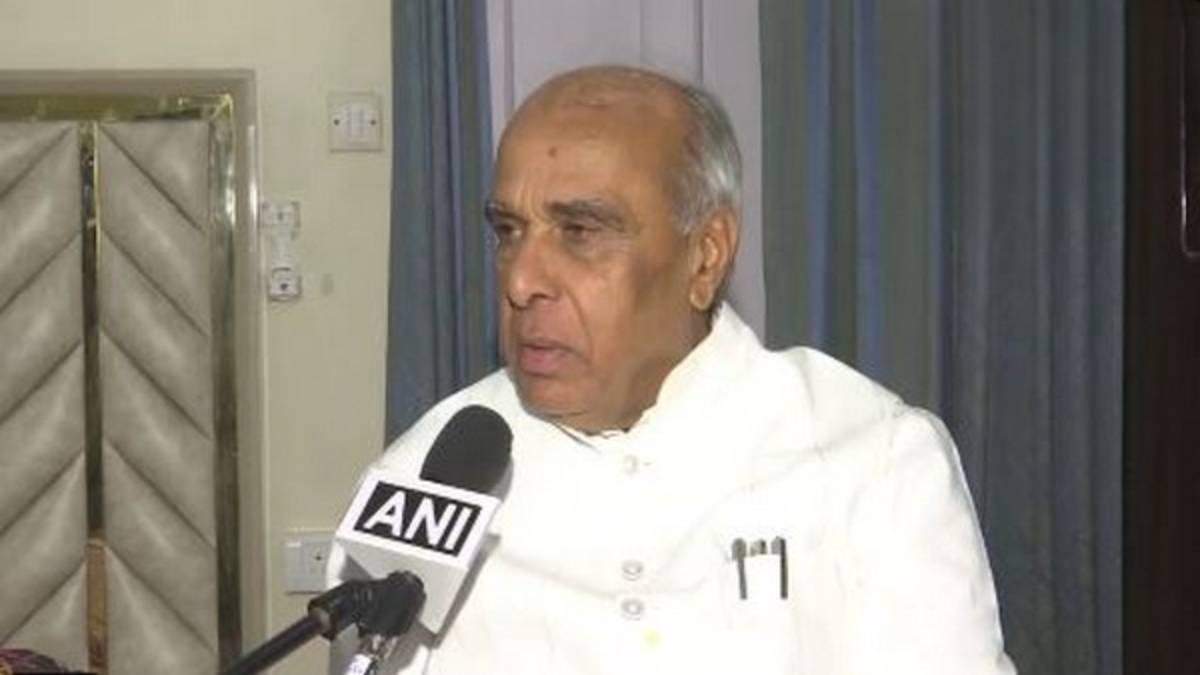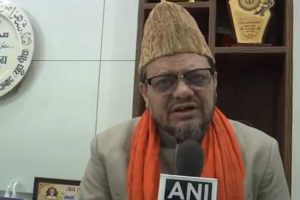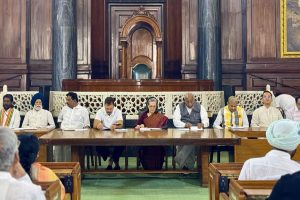Bharatiya Janata Party (BJP) MP Jagdambika Pal, Chairman of the Joint Parliamentary Committee (JPC) on the Waqf Amendment Bill, asserted on Wednesday that the proposed amendments would primarily benefit poor and Pasmanda (backward) Muslims.
Calling it a “historic day,” Pal emphasized that the JPC had engaged extensively with stakeholders across multiple states before finalizing the amendments. “Our hard work has paid off… The government is presenting the bill in an amended form today. This is definitely a historic day. With the passing of this bill, the poor and Pasmanda Muslims are set to benefit. Over the last six months, we have conducted JPC meetings, listening to opposition concerns for eight hours each day,” he told ANI.
Pal criticized the All India Muslim Personal Law Board (AIMPLB) for “politicizing” the bill, particularly for its call to wear black bands during Ramzan prayers in protest. “They are politicizing the issue,” he said.
Meanwhile, BJP leader Mohsin Raza expressed gratitude to Prime Minister Narendra Modi, calling the bill’s passage “the biggest Eidi for backward Muslims.”
However, Congress MP Kiran Kumar Chamala reaffirmed the opposition’s resistance to the bill, warning against any attempts to “de-establish” a particular community. “We will oppose this bill if it is against a particular community. They (the government) have given us eight hours today to discuss it. The opposition’s concerns should be considered in a democratic manner, not bulldozed as was done in the JPC,” Chamala said.
Union Parliamentary Affairs Minister Kiren Rijiju is set to move the Waqf Amendment Bill, 2025, for passage in Parliament today. Both the BJP and Congress have issued whips to their MPs, underscoring the high stakes involved.
With the ruling BJP-led NDA and the Opposition INDIA bloc failing to reach a consensus, the bill’s fate is expected to be determined by the majority numbers on the floor. The bill will be tabled after the Question Hour, followed by an eight-hour discussion, which may be extended.
Originally introduced in August 2024, the bill was sent for review to the JPC, chaired by Jagdambika Pal. It aims to amend the Waqf Act of 1995 to address challenges in regulating and managing Waqf properties. Key reforms include renaming the Act, updating the definition of waqf, improving the registration process, and incorporating technology in record-keeping.
The 1995 Act has long been criticized for issues such as mismanagement, corruption, and encroachments, and the new amendments seek to enhance transparency and efficiency in Waqf board administration.





